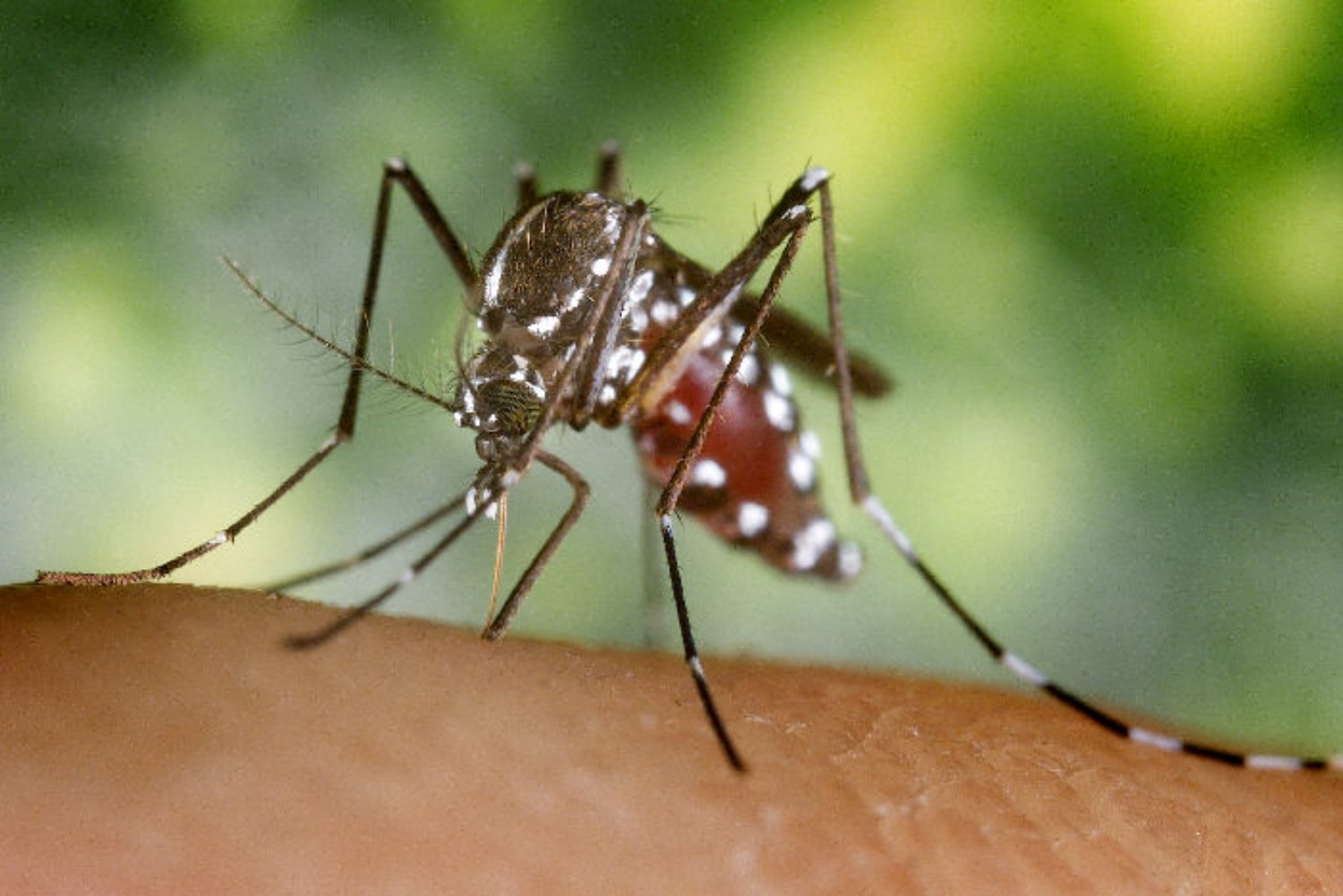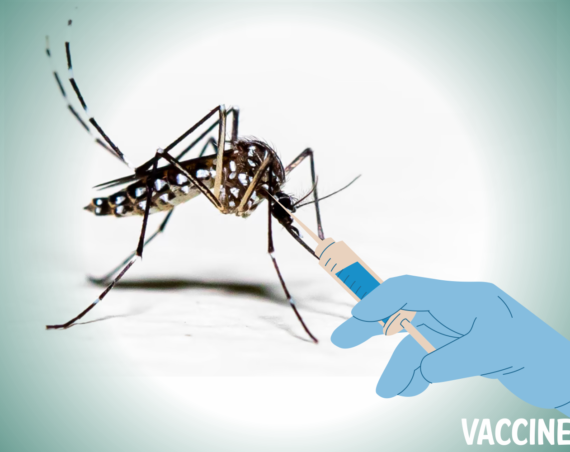What is an Aedes aegypti mosquito?
Aedes aegypti, which is also known as the yellow fever mosquito, is a mosquito that can spread diseases like dengue fever, zika fever, chikungunya, mayaro, and yellow fever. In addition, the mosquito is a vector for transmitting several tropical fevers. Aedes is a genus of mosquitoes that were once restricted to tropical and subtropical zones but are now widespread across all continents except Antarctica.
Here are some facts about the Aedes aegypti mosquito that one should know:
- The Aedes aegypti mosquito primarily bites aggressively in the morning (mainly active for two hours after sunrise) and at sunset. However, it can also bite at other times of the day.
- The female Aedes aegypti mosquito is responsible for the transmission of the disease.
- The physical appearance of the Aedes aegypti mosquito is a black body with a silver-white pattern of scales and banded legs. The silver-white designs look like an ancient Greek musical instrument called the lyre.
- The Aedes aegypti mosquito is a potential vector of the Venezuelan Equine Encephalitis virus and the West Nile virus.
- The eggs of Aedes aegypti can survive being dry for long periods, allowing eggs to be easily spread to new locations.
- Aedes aegypti can bite people without being noticed. This mosquito prefers biting people, but it also bites dogs and other domestic animals, primarily mammals.
What is the lifecycle of an Aedes aegypti mosquito?
The female Aedes aegypti mosquito sucks blood every three or four days or sometimes frequently. After three or four days of sucking blood, it lays eggs in small containers (both artificial and natural) that carry stagnant water. The female lays eggs for several days. As mentioned in the facts above, the eggs can remain dry and survive for six or more months. The entire life cycle stage, i.e., egg-to-larva-to-pupa-to-adult for an Aedes aegypti mosquito, occurs in as little as 7-8 days. The life span for adult mosquitoes is around three weeks.
List of diseases transmitted by Aedes aegypti mosquito
The diseases transmitted by an Aedes aegypti mosquito include:
- Chikungunya
Aedes aegypti mosquito is the primary vector to transmit the chikungunya virus. At present, no vaccine or medicine can cure chikungunya. Severe fever, joint pain, myalgia, swelling in the joints, rash, and headache are the symptoms of chikungunya. - Dengue (also known as the Break Bone Fever)
The carrier or the primary vector involved in the dengue virus transmission is the Aedes aegypti mosquito. All the four dengue serotypes, i.e., DENV-1, DENV-2, DENV-3, and DENV-4, have been isolated from the Aedes aegypti mosquito. Headache, Myalgia, Swollen glands, vomiting, and Joint pain are the symptoms of dengue. - Yellow Fever
Aedes aegypti mosquito is the vector or carrier for an acute hemorrhagic disease called Yellow Fever. It is called yellow fever because patients infected with viral fever have jaundice as their symptoms. Apart from jaundice, the symptoms of yellow fever include headache, myalgia, nausea, vomiting, and fatigue. - Zika Virus
Aedes aegypti mosquitoes are the carrier or vectors for the transmission of the Zika Virus in humans. Zika virus is dangerous as it can pass from a pregnant woman to her fetus leading to congenital disabilities in a newborn. Similar to chikungunya, the zika virus has no vaccine or medicine at present. People with the Zika virus do not show any signs or have mild symptoms. Therefore, it is diagnosed only through a blood or urine test.
How is Aedes Aegypti responsible for dengue?
Female Aedes aegypti mosquito bites humans because they need blood to produce eggs. Another reason is that the Aedes aegypti mosquito spends most of its life in and around the human habitat.
The dengue virus is transmitted through a human-to-mosquito-to-human cycle. When a female Aedes aegypti mosquito bites any human who has dengue virus in their blood, the mosquito then becomes infected with the dengue virus. This infected mosquito becomes a vector and transmits that virus to healthy people by biting them. The dengue virus is found in the salivary glands of the Aedes aegypti mosquito. The infected female mosquito injects its saliva while eating blood from a human host. Saliva helps the mosquito eat by preventing the host’s blood from clotting. Thus when the mosquito injects the saliva on the skin, it infects the host with the dengue virus.
Once a person gets bitten by an infected Aedes aegypti mosquito for four days, they will develop viremia. The presence of a high level of dengue virus in the blood of a human is called viremia. Viremia typically lasts five days, although it can last up to twelve days. The person usually has no signs of dengue fever on the first day of viremia. The person gets symptoms of dengue fever five days after being bitten by an infected mosquito, which might last a week or more.
Only by sucking the blood of a person infected with the dengue virus during viremia, a female Aedes aegypti mosquito can become a vector. The virus enters the mosquito’s system via blood sucked from the host and spread throughout the mosquito’s body in eight to twelve days. After this period has passed, the infected mosquito can transmit the dengue virus to another person while feeding on their blood.
Once infected with dengue, the mosquito will carry the virus for the rest of its life. Infected mosquitos can continue to transmit the dengue virus to healthy people for the rest of their lives, usually in a gap of three to four weeks. Please remember that dengue cannot be transmitted directly from person to person and that mosquitoes are required for dengue virus transmission.
Precautions to prevent yourself from an Aedes aegypti mosquito
Below is the advice you can take to protect yourself from the bite of an Aedes aegypti mosquito:
- Keep your surroundings clean. If you see open cans, tires, large containers, coconut shells, broken earthen pots, vessels spread as garbage in open ground, kindly clean the area or tell the health authorities to clean. These are the breeding places for mosquitoes.
- Do not throw garbage in the sewage or block the sewage.
- Always apply mosquito repellent cream that contains chemicals like DEET, IR3535, picaridin while moving outside the home during the early morning and evening. The presence of natural mosquito repellents like lemon-grass oil and eucalyptus oil is also suitable for keeping mosquitoes away from you. However, before applying any mosquito repellent cream, kindly visit your doctor and take their advice.
- Wear full pants, full sleeve shirts, hats, and shoes to prevent mosquito bites.
- Always keep the house neat and clean. Put door and window nets and screens to prevent the entry of mosquitoes.
- Kill mosquitoes with electric bats or with insecticides available in the market.
- If you have water storage containers, kindly cover the lid adequately. Then, every six months, call a pest control team, and they will clean your house correctly and git rid of any eggs and larvae were given by mosquitoes.
- Drink plenty of water. Use mosquito nets while sleeping. Always keep yourself protected.
- One should always make sure that each room of their house gets proper sunlight.
References
- Dengue Transmission. Accessed at
https://www.nature.com/scitable/topicpage/dengue-transmission-22399758/ - Zika Virus: Symptoms, Testing, & Treatment. Accessed at
https://www.cdc.gov/zika/symptoms/index.html - Everything You Need To Know About Dengue. Accessed at
https://www.dettol.co.in/common-infections/illnesses/everything-you-need-to-know-about-dengue/?gclid=CjwKCAjw7–KBhAMEiwAxfpkWOhe8lfDmZF8m-hCJGq1cQzyMv96ANIYNgdgFhUv7_mYM1-eEwnkyxoCgy4QAvD_BwE&gclsrc=aw.ds - Chikungunya Virus. Accessed at
https://www.cdc.gov/chikungunya/index.html - Aedes aegypti – Factsheet for experts. Accessed at
https://www.ecdc.europa.eu/en/disease-vectors/facts/mosquito-factsheets/aedes-aegypti - Aedes aegypti (Yellow Fever Mosquito) Fact Sheet. Accessed at
https://www.moorparkca.gov/DocumentCenter/View/8360/Aedesaegypti-Fact-Sheet#:~:text=They%20are%20most%20active%20for,other%20domestic%20animals%2C%20mostly%20mammals. - Aedes aegypti. Accessed at
file:///C:/Users/LENOVO/Downloads/Infographic.%20What%20you%20need%20to%20know%20about%20Aedes%20aegypti%20mosquitoes.pdf





